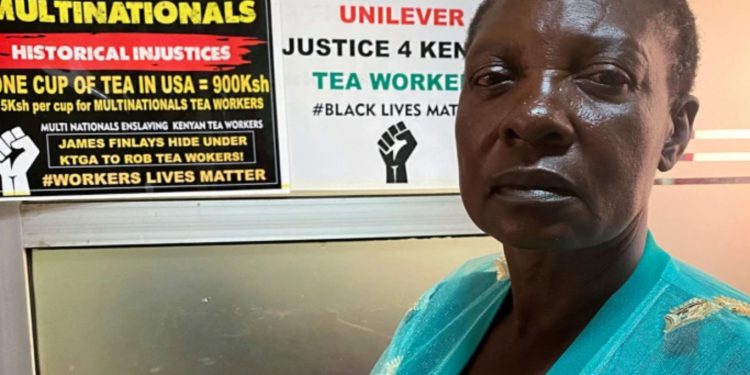A Financial Times feature says that almost 15 years after an attack on a tea plantation in Kericho, Kenya, many workers are still seeking compensation and funds for medical treatment from Unilever.
According to a complaint filed with UN human rights bodies, at least seven people were killed and 56 women raped. The violence, fuelled by ethnic tensions, broke out amid a disputed election in 2007.
With elections due in August, there are concerns for those still with the company.
By then, Unilever’s tea arm may be owned by Luxembourg-based CVC, which agreed to buy the business in a deal expected to be completed in the second half of this year.
Two of the three final bidders for Unilever’s tea business, buyout groups Advent International and Carlyle, pulled out, at least partly, over concerns surrounding the plantations. An indication, say people close to both buyout groups, that even in private equity, with its relentless focus on profit maximisation, fears over the social or reputational consequences of deals are gaining traction, as ethics and sustainability rise up investors’ agendas.
The deal has become a testing ground for how private equity groups approach workers’ pay, conditions and safety in a climate where investors are scrutinising their ethics.
“The whole ESG [environmental, social and governance] lens across these sorts of investments is so much more of a factor than it was before,” says one person involved in the deal.
Advent’s executives were worried about the cost and difficulty of supporting a workforce that is dependent on the plantation for their livelihood, and the potential for bad headlines should things go wrong, says a person close to the private equity firm.
Concerns about the potential for violence during elections in August was another deterrent, he adds.
“The plantations are a whole different ball game” compared with situations private equity firms are used to, says a second person close to the Advent bid.
“You take on responsibility for these workers’ health, their education, their protection.”
Carlyle had similar concerns, a person close to its bid says. “This is not like buying a factory where everyone goes home at the end of the day,” he adds.























